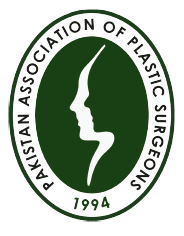
(mouth, tongue, cheek, jaw, throat, nose, neck).
Ulcers , bleeding wounds, decreased mouth opening, painful eating, weight loss
These cancers require multidisciplinary team management (ENT surgeon, Plastic Surgeon , Gastroenterologist and oncologist) Patients usually require tumor excision along with lymph node dissection (surgery of neck) by ENT Surgeons. Plastic Surgeons reconstruct the defects of cheek, mouth and tongue and Jaw. These reconstructions usually (not always) require transplant of skin or bone from thigh, forearm, back or leg to the defect on face. Patients usually require feeding tube to facilitate feeding after surgery and sometime may also require tracheostomy (temporary airway tube from neck) to avoid any difficulty in breathing.
85- 90 percent cases recover smoothly 5 to 10 percent need re-explorations, minor wound complications Less than 5 percent face complete necrosis (loss) of flap Recurrence of tumor depends upon stage of tumor which can vary from 10 to 40 percent.
Minor
wound infections, Marginal or partial necrosis (loss) of flap. Sometimes patient might need 2 nd visit to operation theatre within 72 hours for urgent
correction of blood vessels used for reconstruction of flap (re-exploration of flap)
Major
Major wound infections , complete failure of flap which requires another
surgery for reconstruction.
Approximate duration of procedure
5 to 10 hours (depending on extent of involvement and choice of reconstruction)
Approximate duration of hospital stay
3 days to 1 week as in patient (with 1 to 2 days of Special care/ ICU setup)
Chances of success
90 to 95 percent
Alternate options
Pedicled (local ) flaps in cases which lead to major flap loss.
Long term effects
Few cases might lead to trismus (decreases mouth opening ) if they fail to do
aggressive mouth opening exercises. Patients always require regular follow up to observe any sign of recurrence
Outcome depends on the location and size of the fistula and status of surrounding tissues. Although most of the fistula closes after the surgery, some may recur and requires further surgery.
It usually takes less time than the original hypospadias repair and completes in less than an hour.
The surgery is performed under general anaesthesia and as a day care procedure. Patient can go home the same day after recovery from anaesthesia.
The most common complication is recurrence of the defect. Others complications include infection, difficulty in urination and stricture formation


